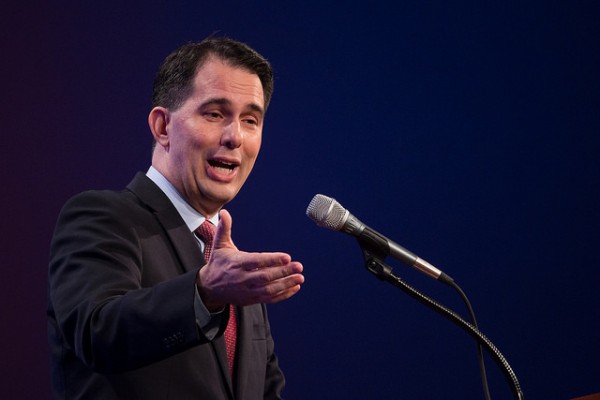
Photo by John Pemble via Flickr
On the eve of the Israeli elections back in March, Israeli Prime Minister Netanyahu proclaimed that there would be no Palestinian state under his watch. This created an international outcry and he quickly walked the statement back after a great success on election day.
On Wednesday, he met with European Union Foreign Policy Chief Federica Mogherini and, for the first time since the election, outright proclaimed his commitment to a two-state solution. “We want a peace that would end the conflict once and for all… I don’t support a one-state solution, I don’t believe that’s a solution at all, I support the vision of two states for two peoples.”
Netanyahu has, however, taken numerous steps in recent days to imply otherwise:
But words matter, and how Bibi talks about the future matters. When he speaks to a delegation from the EU, his words are reported. Israelis now know that he is (still) committed to the peace process (again), at least on paper.
Wonder what he says to international delegations when the cameras are not rolling? This week, we might have gained some insight.
Wisconsin Governor and presumptive GOP presidential candidate Scott Walker visited Israel last week on a five-day “listening tour.” He released no itinerary and spoke to no press. But he did allow his trip to be livetweeted by one of his tour guides, Matt Brooks, Executive Director of the Republican Jewish Coalition.
Walker met with Zionist Union leader Isaac Herzog, Jewish Agency chairman Natan Sharansky, Habayit Hayehudi leader Naftali Bennett, Knesset Speaker Yuli Edelstein, National Infrastructure Minister Yuval Steinitz, Israel Defense Forces and former Deputy Chief of Staff Uzi Dayan, U.S. Ambassador Dan Shapiro and of course Prime Minister Benyamin Netanyahu. Peter Beinart astutely points out that Walker, despite going on this educational trip to Israel, never met with any Palestinians (Israeli citizens or otherwise).
What that means is that Walker got a very Jewish Israeli side of the conflict. That’s fine — he is entitled to speak with whoever he wants. And likewise, he is not required to meet with anybody he doesn’t want to speak with.
But here’s where we get some insight into what Netanyahu and his allies are likely saying behind closed doors. Walker came home last week and paid a visit to Sean Hannity. When the subject of his trip to Israel came up, Walker’s comment on the two-state solution was that, “it’s not the time for that now.” He declared that Israel would “need defensible and secure borders and they’re a long way off from having that happen.” He continued: “We were looking there and you could see [from] a helicopter up in the air you could see how close the threats were from Hezbollah, the Islamic State, down to the problems in Gaza.”
Walker’s fresh perspective on the two-state solution is not exactly nuanced. The fact that Israel needs “defensible and secure borders” could realistically be an argument in favor of a two-state solution. While some argue that the settlements act as a safety net, functioning like a “bulletproof vest for Israel” (that’s according to Silvan Shalom, Israel’s new point person or Palestinian negotiations), they also keep Israel from having a true border, which can then be fully defended and secured.
While talking about the two-state solution, Walker also brings Hezbollah and the Islamic State into the mix, with a vague mention to “the problems in Gaza.” Maybe Walker believes that a two-state solution will be more viable once we see a major shift toward stability and peace in the Middle East. If that is the case, then “long way off” should be taken quite seriously.
Walker pontificating on the future of Israel and the Middle East, however, is not really the point. The point is that Walker just went on a listening tour to Israel and while there, he met behind closed doors with top Israeli officials, including Prime Minister Netanyahu. And the first real comment Walker made following his trip was to say that the two-state solution is not viable, at least for the foreseeable future.
Did he hear from these top Israeli leaders how much they yearn to find a way toward a two-state solution, and then return home and and offer Hannity a completely different take? Maybe. But probably not.
Follow me on Twitter @jlemonsk.